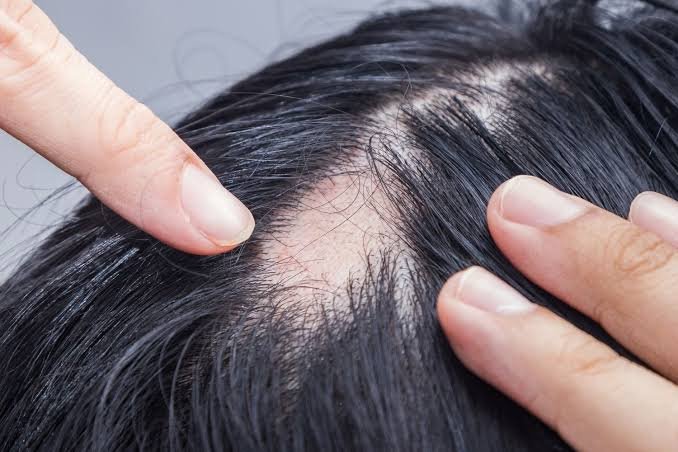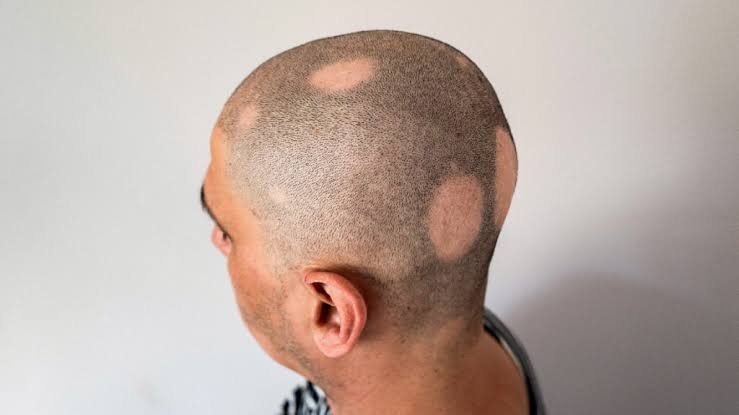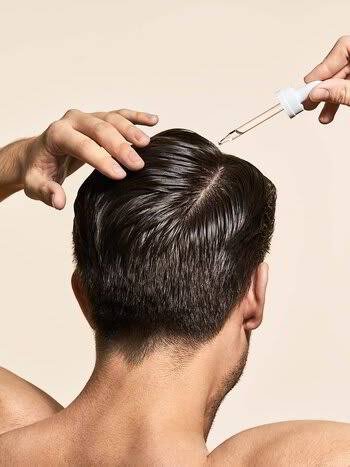Alopecia is a condition that causes hair loss. It can affect people of all ages, races, and genders. There are many different types of alopecia, but the most common is alopecia areata.

What is Alopecia and How to treat alopecia
Alopecia areata is an autoimmune disease, which means that the body’s immune system mistakenly attacks the hair follicles. This can cause hair to fall out in small, round patches. In some cases, alopecia areata can cause more widespread hair loss.
Symptoms of Alopecia Areata
The most common symptom of alopecia areata is hair loss in small, round patches. The patches of hair loss may be completely bald or may have a few stray hairs. In some cases, alopecia areata can cause more widespread hair loss, such as losing all of the hair on the scalp (alopecia totalis) or all of the hair on the body (alopecia universalis).

Symptoms of Alopecia Areata
Causes of Alopecia Areata
The exact cause of alopecia areata is unknown, but it is thought to be an autoimmune disease. This means that the body’s immune system mistakenly attacks the hair follicles. There are a number of factors that can trigger alopecia areata, including stress, certain medications, and infections.
Treatment for Alopecia Areata
There is no cure for alopecia areata, but there are treatments that can help to regrow hair. Some of the most common treatments for alopecia areata include:
Corticosteroids:
Corticosteroids are powerful anti-inflammatory drugs that can help to suppress the immune system. They can be administered through injections, creams, or pills.
Minoxidil:
Minoxidil is a topical medication that can help to stimulate hair growth. It is available over-the-counter or by prescription.

usage in scalp for alopecia and Hairloss treatment
How to Use Minoxidil for Hair Loss and Best time to apply and Side effects of Minoxidil
Immunosuppressants:
Immunosuppressants are medications that can help to suppress the immune system. They are typically used for more severe cases of alopecia areata.
Hair transplantation:
Hair transplantation is a surgical procedure that can be used to move hair from one area of the scalp to another.
Lifestyle Changes for Alopecia Areata
In addition to medical treatments, there are also some lifestyle changes that can help to manage alopecia areata. These include:
Stress reduction:
Stress can trigger hair loss in people with alopecia areata. Finding ways to manage stress, such as yoga, meditation, or tai chi, can help to prevent hair loss or promote regrowth.
Here are some important points to maintain good Mental Health
Good nutrition:
Eating a healthy diet that is rich in fruits, vegetables, and whole grains can help to keep your hair healthy and strong.
Taking care of your scalp:
Keeping your scalp clean and free of dandruff can help to prevent hair loss and promote regrowth.
If you are experiencing hair loss, it is important to see a dermatologist to get a diagnosis and discuss treatment options. With proper care, many people with alopecia areata can regrow their hair and live a normal life.**
What is PRP treatment for hair fall or Hairloss and how it helps in hairs growth
I hope this article is helpful. Please let me know if you have any other questions.
